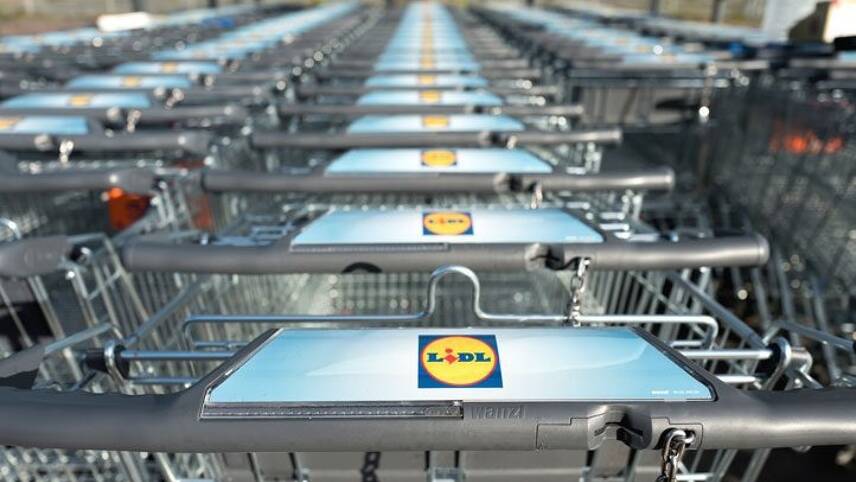Register for free and continue reading
Join our growing army of changemakers and get unlimited access to our premium content

Image: Lidl GB
Lidl GB announced on Monday (6 March) that it had signed up to WWF’s Retailers’ Commitment for Nature.
Tesco and WWF first announced the initiative in 2018, with the aim of creating a “pioneering” industry measure of the environmental impact of the average UK shopping basket, based on food and ingredients.
The overarching goal of Tesco and WWF’s partnership is to halve the environmental impact of the average UK shopping basket by 2030, compared with a 2019 baseline. Four other supermarkets signed on to that commitment at COP26. The impact is measured on a life-cycle basis and the methodology includes information relating to emissions, deforestation, food waste and packaging waste. The wider role that supply chains have to play in promoting sustainable food systems and more sustainable diets are also considered.
Lidl GB is the first discount retailer to sign up to the initiative and joins Tesco, Co-op, M&S, Sainsbury’s and Waitrose. In total, 60% of the UK retail grocery market is covered by the initiative.
WWF’s chief executive Tanya Steele said: “Our food system is placing an unbearable toll on the planet: it’s driving climate chaos and fuelling the destruction of nature in the UK and overseas, undermining our resilience and putting our future at risk.
“Tackling the food system’s excessive environmental impact, while continuing to produce healthy and affordable food, is a huge challenge. But driving change from farm to fork and across supply chains that span the globe is an essential step for our food security.”
In 2021, Lidl GB announced plans to become a carbon-neutral business the following year, alongside wider commitments to reduce operational emissions and encouraging key suppliers to set their own climate commitments. By 2030, Lidl will reduce its operational emissions by 80% compared to 2019 levels across all countries that it operates in.
The retailer has focused on cutting carbon emissions from stores and distribution centres through onsite solar installations at new stores and investments in low-carbon refrigeration and lighting technologies.
As well as setting science-based net-zero targets aligned with 1.5 degrees across all scopes, Lidl has also confirmed alignment with WWF’s more recent joint retailers’ climate action focused on reducing supply chain emissions.
Lidl GB’s chief executive Ryan McDonnell said: “As the first UK discounter to work with WWF on this, we’re continuing to demonstrate that affordability and sustainability don’t have to be mutually exclusive.
“Sustainability has been core to the Lidl business model for many years. We firmly believe it is our responsibility, through innovation, investment, and active leadership, to build a better future – for our business, our agri suppliers, the people we interact with and our planet.”


Please login or Register to leave a comment.